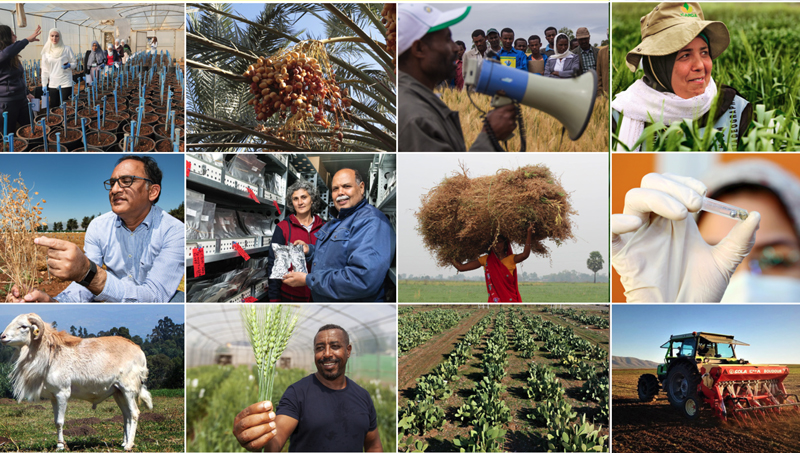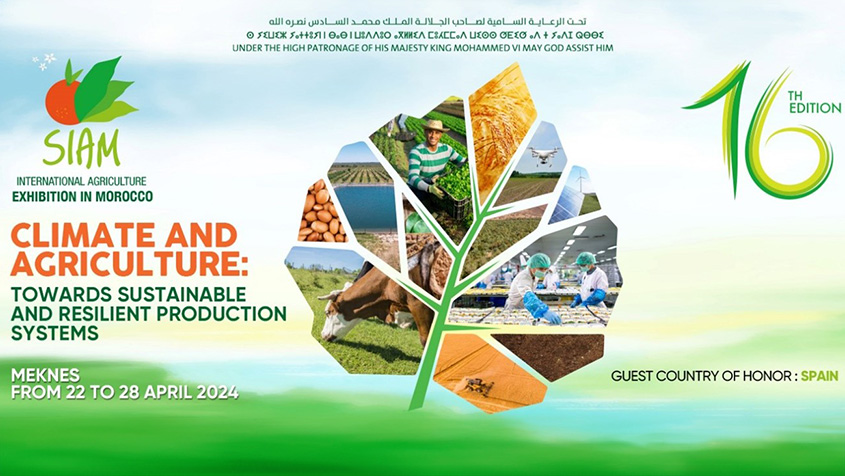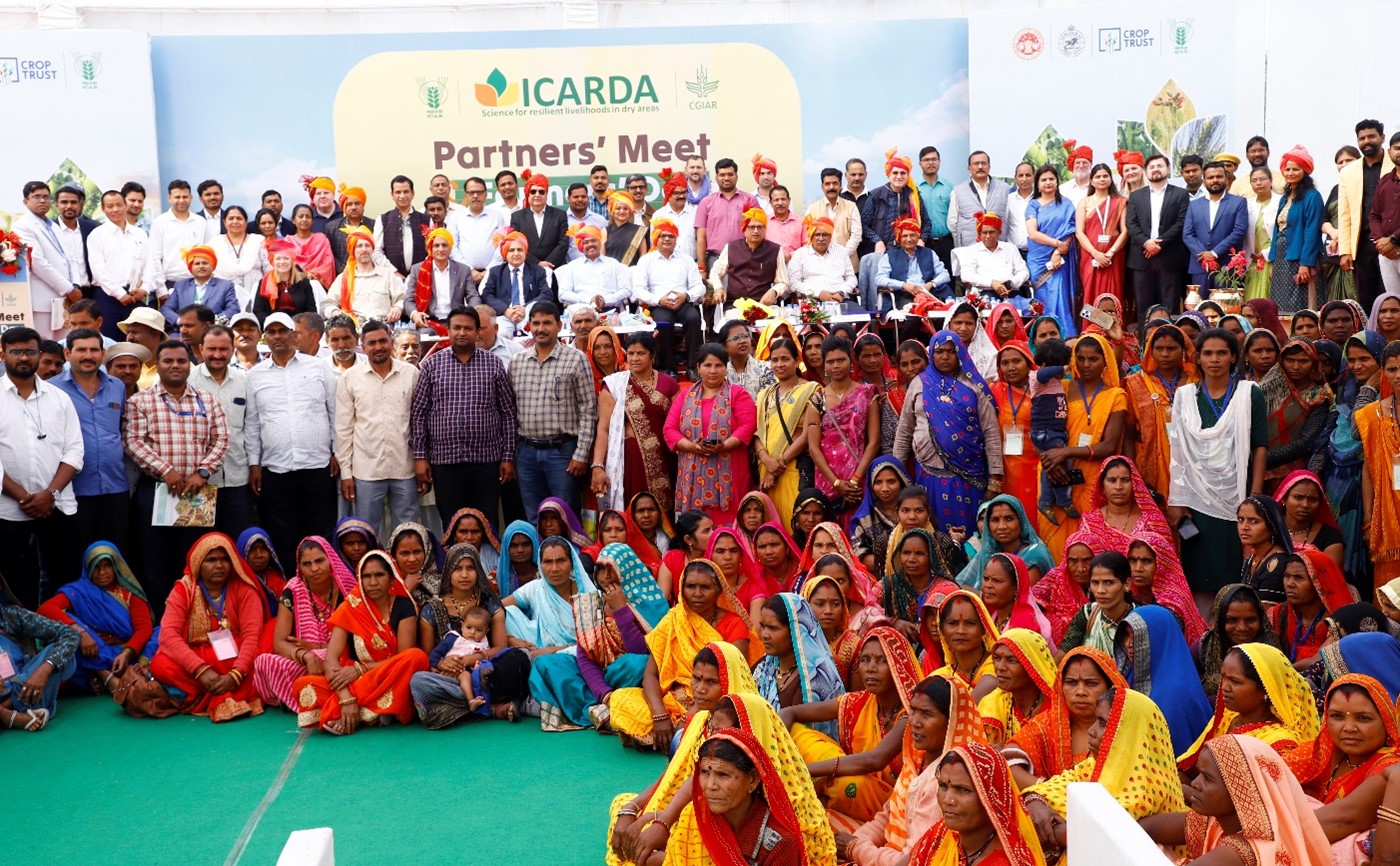ICARDA hosts the CGIAR System Council and Independent Science for Development Council in Morocco
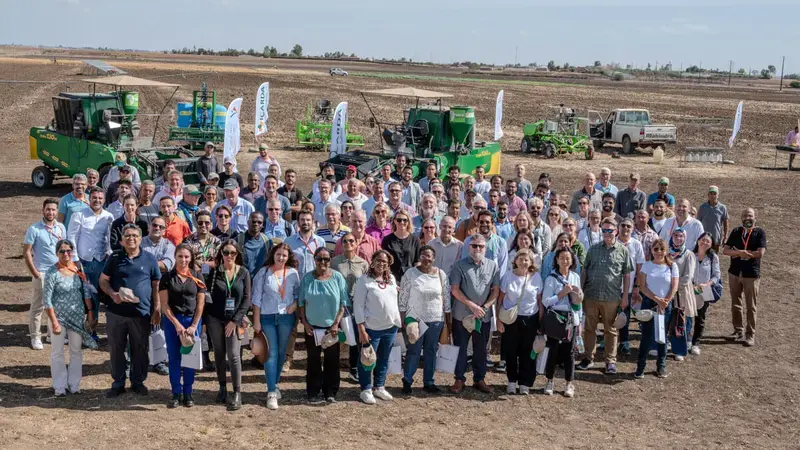
ICARDA and INRA-Morocco recently hosted the CGIAR Independent Science for Development Council (ISDC) and System Council (SC) annual meetings in Rabat. These meetings play a pivotal role in shaping the future of CGIAR, ensuring that we empower the communities we serve with the skills and tools necessary for building resilient livelihoods.
Every year, CGIAR's ISDC and the System Council convene separately at CGIAR sites around the world.
This year, ICARDA was thrilled to host both councils simultaneously at the Research Center in Rabat, Morocco, welcomed by Aly Abousabaa, ICARDA Director General and CGIAR Regional Director-CWANA, and Dr. Faouzi Bekkaoui, INRA-Morocco Director General. It was an opportunity for the two councils to experience first-hand the groundbreaking innovation in climate-smart agriculture and for ICARDA's staff to be updated with CGIAR's long-term plans along with the progress on the OneCGIAR transformation.
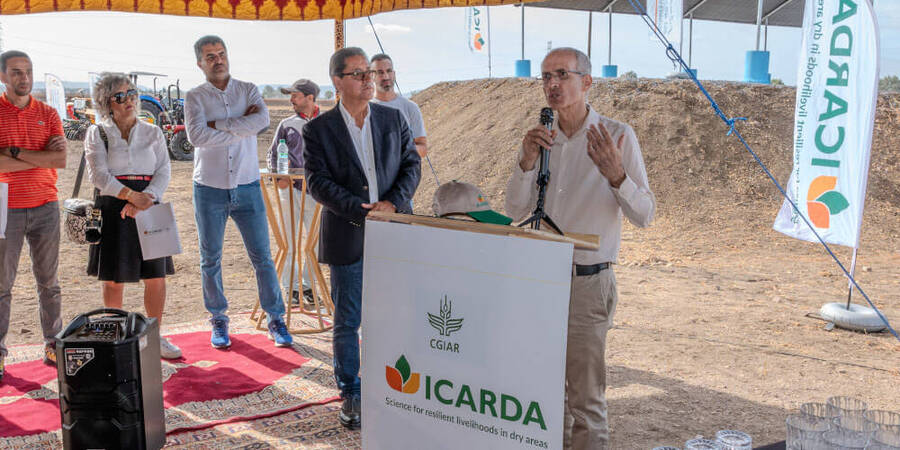
Over the week, in addition to closed-door strategic discussions, the councils were treated to a full program of activities hosted by ICARDA. A field trip to Marchouch Research Station was carried out, where ICARDA scientists showcased the latest developments in our globally and regionally mandated climate-smart crops and sustainable irrigation methods. ICARDA scientists also presented their latest work to the council.
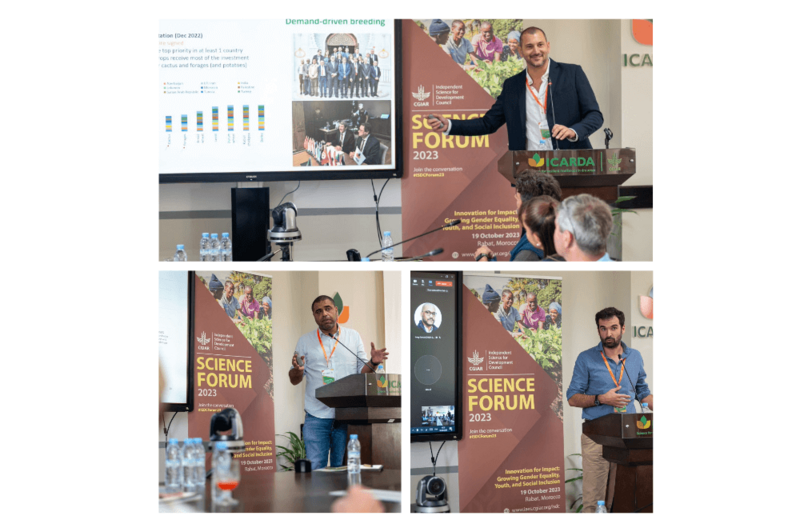
ICARDA's Integrated Pest Management (IPM) and Seed Health Lab were of particular interest. IPM, which has an ecological base, focuses on the use of a wide range of pest control options instead of relying only on the use of pesticides. Developing or implementing an IPM program for a crop involves a systematic application of knowledge about the crop and the pests involved, including a comprehensive overview of the biology (life cycle, damage, losses, geographical distribution, and host range) and management of major pests and diseases, besides addressing issues related to farming practices in relation to pest and disease management.
ICARDA's milling, malting, and baking lab was also visited, where council members sampled barley bread, a climate-smart alternative to wheat bread that ICARDA is trying to scale up nationally.
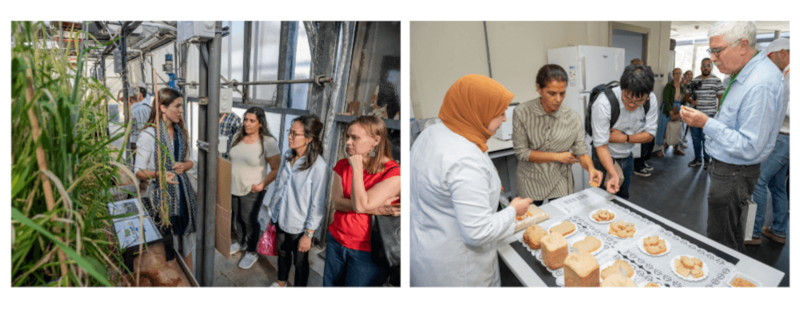
ICARDA's new genebank, inaugurated in 2022 by His Excellency Dr. Mohamed Sadiki, Morocco's Minister of Agriculture, was also toured. The lab holds over 110,000 accessions of regional plant genetic resources that form the basis of climate-smart crop development. Plant samples are collected from the region and conserved in the genebank before being analyzed for their climate-smart traits, such as heat, drought, or pest resistance, which are then bred into new varieties of crops. These are then tested in real-life conditions at the Marchouch test field to ensure they will produce good yields in increasingly challenging climate conditions.
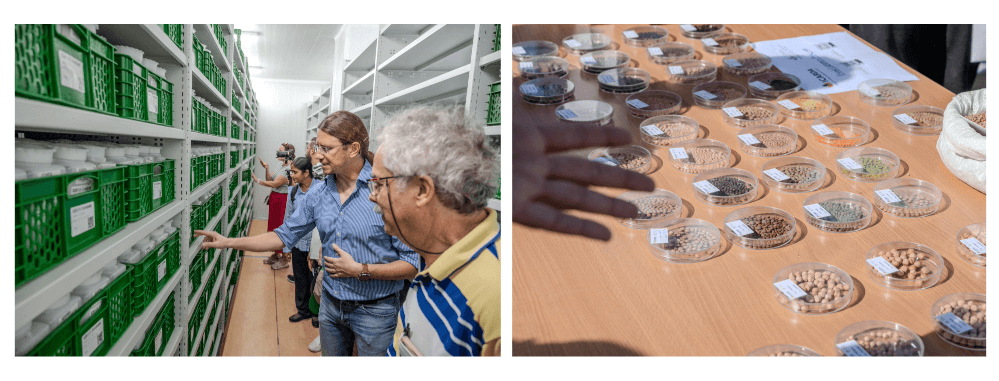
The Rabat site is also ICARDA's lead center for one of CGIAR's global research initiatives – From Fragility to Resilience (F2R-CWANA). Dr. Michael Baum presented the initiative and its progress. He explained how the initiative aims to develop resilient agrifood systems that can withstand the impact of climate change, generate economic opportunities, and deliver better incomes and livelihoods for rural communities in the region.
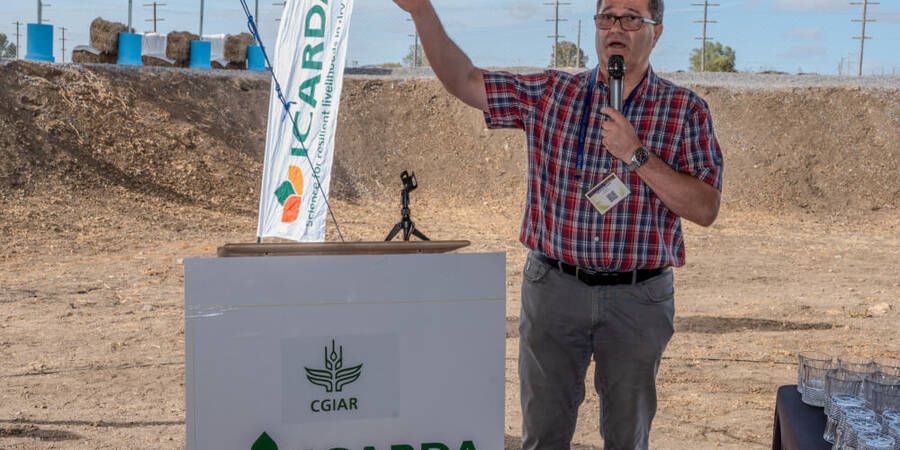
Other evidence-based innovations were on show by the Soil, Water, and Agronomy team, such as ICARDA's development in conservation agriculture that aligns with Morocco's decision to convert one million hectares of cereals' cultivation to Conservation Agriculture by 2030, as well as the latest water management and irrigation innovations and technology, such as automated moisture monitoring solutions, and ultra-low energy irrigation drippers.
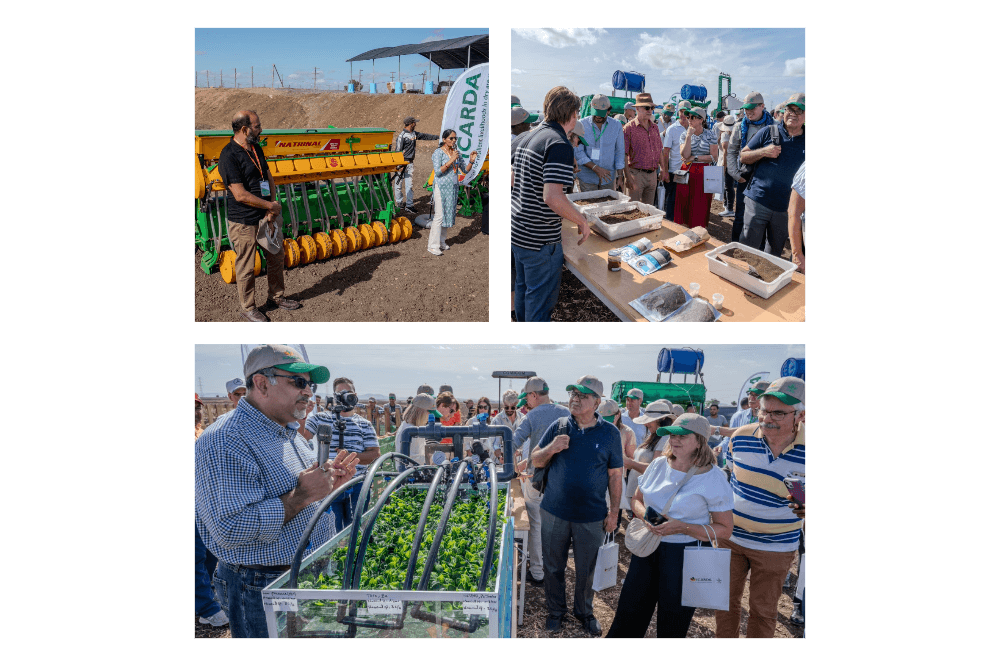
During the Marchouch research field visit, a nutritious lunch of couscous was served by a local women's cooperative that ICARDA is supporting in improving quality accreditation and market access for their products. ICARDA's Dr. Dina Najjar then led discussions on gender inclusivity and the role of women in agriculture. The participants engaged in a round-table on cooperative needs, recognizing cooperatives' vital role in empowering women farmers.
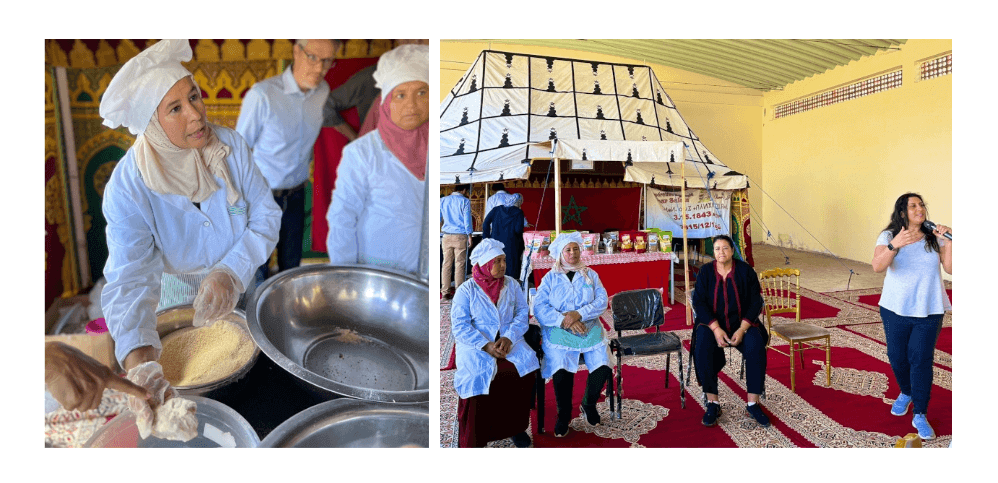
ICARDA and INRA-Morocco then hosted ISDC's 2023 Science Forum on Gender Equality, Youth, & Social Inclusion with the goal to explore and debate science for development through international dialogue on critical issues in agricultural research. The 2023 Forum is the second in a three-part series dedicated to innovation. Through a content-packed agenda, speakers presented their latest research on gender equality, youth, and social inclusion and provided recommendations for CGIAR. The feasibility of these recommendations within CGIAR and the global agrifood research for development community was then considered via two lively panel discussions. ISDC also presented its latest commissioned research on megatrends for this Impact Area. The megatrends' implications for the CGIAR research portfolio were discussed during the CGIAR-focused panel.
The final two days of the visit were dedicated to the 19th CGIAR System Council Meeting (SC19). The agenda included several key reflections from Prof. Lindiwe Majele Sibanda, the System Board Chair, and the Interim Executive Managing Directors.
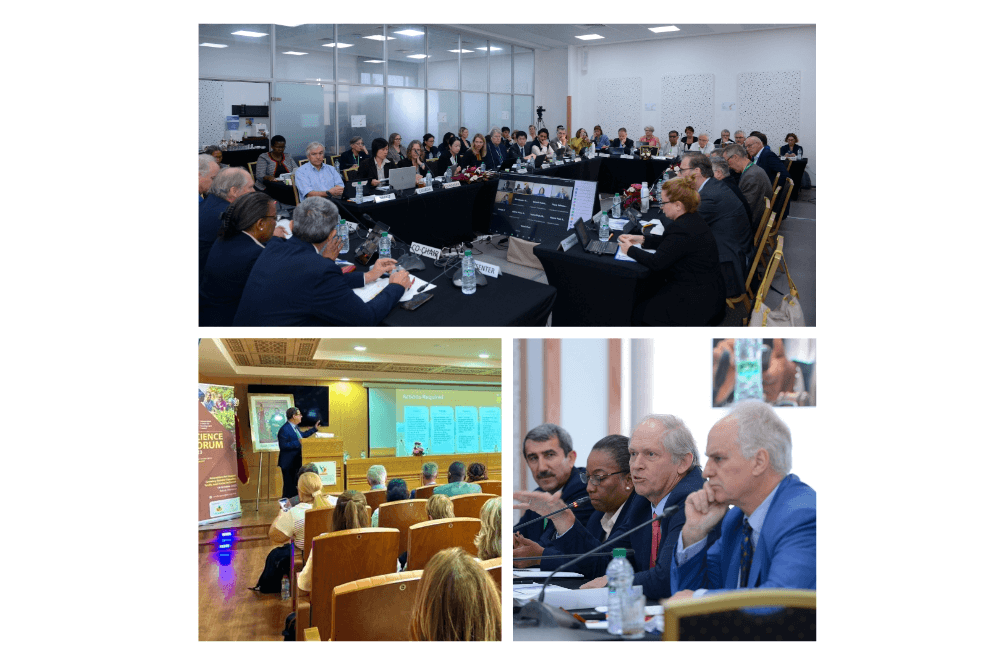
Updates were provided on operationalizing the CGIAR Integration Framework Agreement, the 2025-2027 Portfolio design process, and the CGIAR Financial Plan. Discussions also covered funding modalities, financing CGIAR's genebanks, innovative finance and resource mobilization, and the Unified Governance Review.
Additionally, topics such as gender in CGIAR's research, diversity and inclusion in CGIAR's workplaces, ethics and business conduct, AI and digital innovation, regional partnerships, and reports from various committees were addressed. The meetings concluded with discussions on planning for independent advising and evaluative evidence, the Independent Science for Development Council, and other business matters.
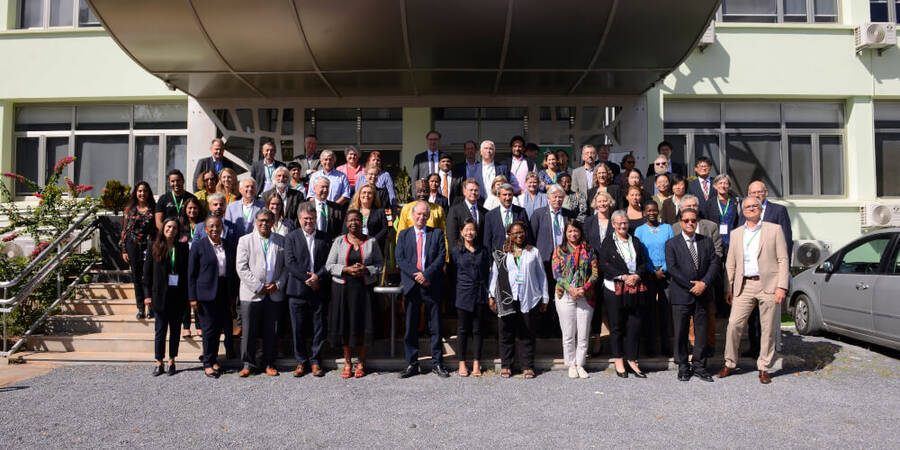
The ISDC and System Council meeting outcomes will be published on the CGIAR website in due course.
----------------------------------------------------------------

